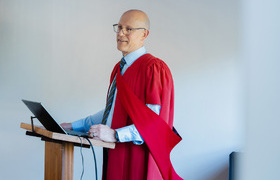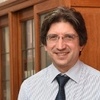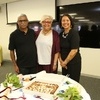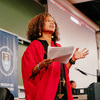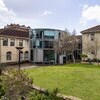Google PhD Fellowship ‘Hail Mary’ proves successful for UCT student
23 January 2024 | Story Kamva Somdyala. Photo Supplied. Read time 5 min.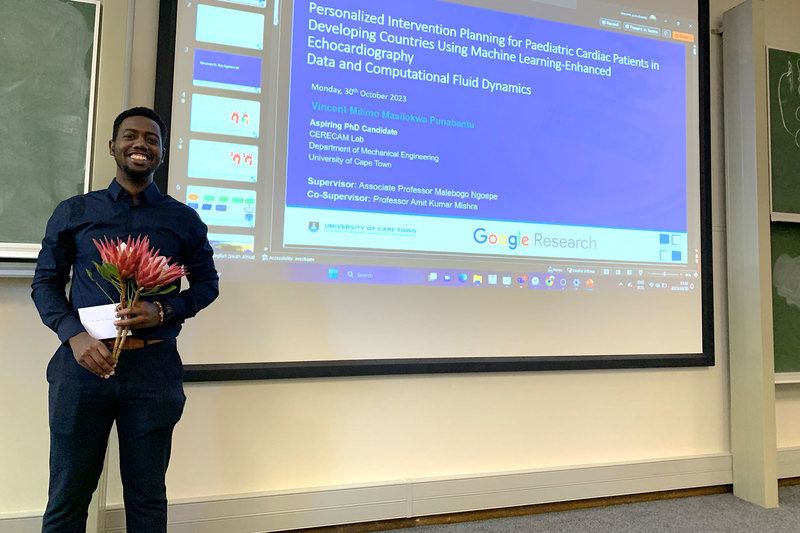
Zambia-born Vincent Punabantu has made significant strides in pursuing his PhD at the University of Cape Town (UCT). The recipient of Google’s PhD Fellowship Programme, Punabantu is setting his eyes on producing outcomes relating to machine learning to enhance the extraction of patient measurements from ultrasound images.
The programme was created to recognise outstanding graduate students doing exceptional and innovative research in areas relevant to computer science and related fields. Fellowships support promising PhD candidates of all backgrounds who seek to influence the future of technology. The fellowship provides financial support and pairs the recipient with a Google Research mentor over a three-year period.
A student of the Faculty of Engineering & the Built Environment, Punabantu said, “The aim of this project is the development of a pipeline that aids in the design of personalised paediatric cardiac patient intervention plans using echocardiography (cardiac ultrasound) as an imaging modality and machine learning (ML) and computational fluid dynamics (CFD) as the means of analysis.”
Kamva Somdyala (KS): What can you share about your research?
Vincent Punabantu (VP): The aim is to provide doctors with additional information that is not available to them, using current forms of medical imaging to aid them in the intervention and post-operative care of patients. In addition, a key focus of the methods being developed is on their feasibility in hospitals and clinics in both South Africa and the rest of Africa. Therefore, my fellow collaborators and I would like our work to cross over from the research domain into hospitals and help save lives as opposed to remaining in a lab.
KS: What can you tell us about yourself?
VP: I was raised in a Catholic household that has a very strong emphasis on the value of education and hard work. As far back as primary school I had an interest in science. In today’s speak, one would say I was a nerd from a very young age. My first science project was about sharks, and by the time I was in Grade 7, it was about solar energy, where I had built a solar-powered windmill in 2010. The flame for engineering continued to burn and I found myself at UCT after setting my sights on coming here in 2013.
Fast forward to 2021, a near decade-long journey had reached its culmination when I finished my degree in mechanical engineering.
KS: How did the Google PhD Fellowship Programme come about?
VP: I found out about the Google PhD Fellowship Programme last year when I was searching for research internship opportunities in machine learning towards the end of the first year of my master’s in 2022. Around the same time, I had a conversation with my supervisor about what to do next once my master’s degree was done. Fast forward to early 2023, I had just gotten back from Zambia and my supervisor told me that if I would like to pursue a PhD, I would have to find a way to fund it as she did not have any funding available.
“It’s safe to say that I wouldn’t have been able to pursue my PhD if not for the fellowship.”
That began an almost year-long process of writing grant applications and scholarship applications. Applying to Google was my Hail Mary or moonshot funding application but I simply said to myself, “Why not?” A lot of writing was done, as there were multiple essays and an entire PhD proposal to write, each of which had multiple drafts. I submitted before the deadline and after that it was in God’s hands. I shouted with elation, jumped up and thanked God.
KS: What has been the most enjoyable part of your academic journey?
VP: I have been blessed to have understanding supervisors who share this sense of wonder and who give me the freedom to try and fail. I have the vivid memory of when I was doing my final-year project, my co-supervisor, who is a professor in electrical engineering, said that he was looking forward to learning from me, which went against conventional wisdom.
KS: Would you have been able to pursue your PhD were it not for the fellowship programme?
VP: It’s safe to say that I wouldn’t have been able to pursue my PhD if not for the fellowship, as I have received zero responses from all my other applications. Being an international student, accessing funding from local institutions is often very difficult as the allocated pool of funding is usually small and there are several applicants, so competition is stiff.
KS: What is your goal once you have completed your studies?
VP: My goal is to build and contribute. The main challenge is figuring out what exactly should be built and where the contributions should be made. The rough idea I have for the short to medium term are targeted towards agriculture, education, manufacturing, and healthcare, as I see that these are areas of need – both at home and the surrounding region. However, this is subject to change.
 This work is licensed under a Creative Commons Attribution-NoDerivatives 4.0 International License.
This work is licensed under a Creative Commons Attribution-NoDerivatives 4.0 International License.
Please view the republishing articles page for more information.
Research & innovation


